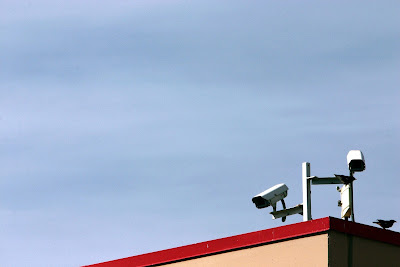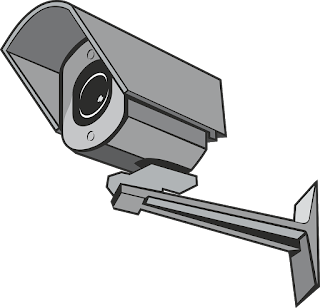 There are so many CCTV cameras on the market today. This presents a great opportunity for you to find a camera that does exactly what you need. The first step in choosing a CCTV camera is understanding the main types of cameras out there, and of course determining the main purpose for your surveillance.
There are so many CCTV cameras on the market today. This presents a great opportunity for you to find a camera that does exactly what you need. The first step in choosing a CCTV camera is understanding the main types of cameras out there, and of course determining the main purpose for your surveillance.What is a CCTV Camera System?
Closed-circuit television (CCTV) is the use of CCTV video cameras to transmit a video signal to a monitor for live viewing, or to a recording device for viewing at a later date. They are used primarily for surveillance and security purposes.
What Type of CCTV Camera Should I Buy?
Here is a selection of the different types of CCTV Cameras you can consider:
Dome Camera
Dome Cameras are often used for indoor security and surveillance. Typical applications are retail environments, where the camera is designed to be unobtrusive, but visible. In addition, the "dome" shape makes it difficult to tell the direction that these cameras are facing, and thus are ideal for deterring criminals. The “bad guys” will know the facility is being watched and customers will feel at ease knowing the facility is being protected. Units that allow the camera to pan/tilt/zoom and spin quickly within the housing are often referred to as “speed domes.” Speed domes are used to cover a wide area with only one camera, or to avoid poor light conditions at certain times of day.
Bullet Camera
Bullet Cameras have a long, cylindrical, and tapered shape, similar to that of a "rifle bullet", often used in applications that require long distance viewing. The camera is not typically designed to have pan/tilt/zoom control but instead to capture images from a fixed location, pointing at a particular area.
A bullet camera is a wall-mount or ceiling-mounted unit that is typically designed for indoor use, but can also be used for some outdoor applications. Many bullet cameras can also be waterproof by being installed inside protective casings, which protect against dust, dirt, rain, hail and other harmful elements.
C-Mount Camera
C-mount cameras have detachable lenses to fit different applications. Standard camera lenses can only cover distances of between 35 and 40ft, therefore with C-mount cameras, it is possible to use special lenses, which can cover distances greater than 40ft.
Day/Night Camera
Day/Night cameras have the distinct advantage of operating in both normal and poorly-lit environments. These cameras do not have Infrared illuminators because they can capture clear video images in varying light conditions and in the dark.
The camera is ideal for outdoor surveillance applications, where Infrared CCTV cameras cannot function optimally. These cameras are primarily used in outdoor applications and they can have a wide dynamic range to function in glare, direct sunlight, reflections and strong back light 24/7.
High-Definition HD Camera
Ultra high-definition cameras are often relegated to niche markets, such as casinos and banks. These give the operators the ability to zoom in with extreme clarity (to look at a poker player who might have something up their sleeve).
If you plan to conduct corporate surveillance, there are some additional factors to consider. Click here to view our post: Corporate Surveillance | What You Need to Know.
We offer a variety of corporate surveillance services that will allow us to discreetly gather information and assist you in presenting unbiased facts and circumstances. We have a strict privacy policy in place, and can assist you in navigating your own privacy-related legislative requirements.
Contact us today for more information about our corporate surveillance services.
The Renwick Group has experience working with many different types of businesses and organizations providing skip-tracing, fraud investigations, WSIB support, legal team assistance, evidence gathering, employee background checks, and more. We also work with individuals who need help with personal matters. Call us at 1 (888) 722-9807 or visit our website for information.


